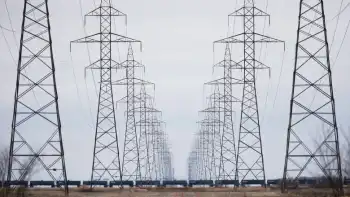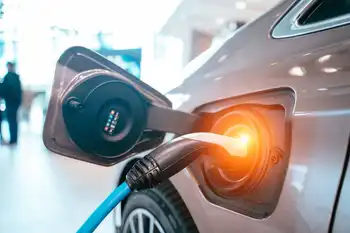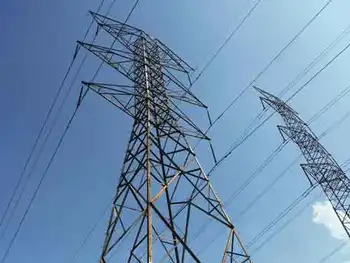Phoenix Suns go solar
PHOENIX, ARIZONA - Planet Orange is going green.
The Phoenix Suns, APS and the City of Phoenix announced plans to install a major solar panel power project at US Airways Center.
Suns guard Steve Nash, Suns General Manager Steve Kerr, APS President and CEO Don Brandt and Phoenix City Councilman Michael Johnson made the announcement, unveiling plans for a solar photovoltaic (PV) system on the fifth level of the US Airways Center parking garage. The system is expected to be operational in 2009.
“We expect the solar technology to reduce the traditional power usage for a portion of the center’s Casino Arizona Pavilion load by about 25 percent or the equivalent of 26 Suns home games each season,” said Kerr. “This demonstrates our ongoing commitment to promote and implement environmentally friendly initiatives that have a positive impact on everyone who follows the Suns or visits US Airways Center.”
In addition to a financial incentive through the Renewable Incentive Program approved by the Arizona Corporation Commission, and safe interconnection to the grid, APS will provide supporting resources and expertise to the Suns organization and the City of Phoenix, which owns the arena. The 194-kilowatt AC solar energy system will be designed and installed by EI Solutions Inc., and financed and operated by Tioga Energy.
The system will utilize 1,125 Suntech panels, will cover approximately 18,000 square feet and will produce 331,233 kilowatt-hours each year.
“We want to make Arizona the solar capital of the world, and clean, solar energy will play a vital role in Arizona’s energy future,” said APS’ Brandt. “We got involved in this project because solar installations at large businesses make a tangible difference. Not only do they benefit the environment and the community, but they can also make good business sense.”
”Our goal for Phoenix is to become the first sustainable city of the 21st Century. With this project, we have taken another step toward a sustainable downtown, powered by renewable energy sources,” said Mayor Phil Gordon. “Thanks to the Suns and APS, the US Airways Center solar project joins other large installations, such as the one at the Phoenix Convention Center, in reducing the city’s carbon footprint.”
By using the solar power system, the Phoenix Suns and APS will eliminate the generation of more than 440,000 pounds of carbon dioxide (CO2) per year from the environment (based upon Arizona average per the EPA eGRID 2004 data). These emission offsets equal the CO2 absorbing power of 46 acres of pine trees or more than 440,000 car-miles avoided.
APS currently generates 145 megawatts from renewable sources such as solar, biomass and wind, or enough to power 37,000 homes. This number will continue to grow as APS adds renewable energy projects to its portfolio, including Solana, a 280-megawatt concentrating solar power plant, which will power 70,000 more homes when it comes online in 2011. Working with the Arizona Corporation Commission, the company also offers a number of residential and business renewable energy programs and incentives to customers; information is available at www.aps.com/gosolar.
In addition to the new solar project, the Phoenix Suns have incorporated a number of environmentally friendly practices into the organizationÂ’s daily business routines including implementing recycling throughout employee offices and initiating an incentive-driven employee carpooling program.
Related News

SaskPower to buy more electricity from Manitoba Hydro
REGINA - Saskatchewan's Crown-owned electric utility has made an agreement to buy more hydroelectricty from Manitoba.
A term sheet providing for a new long--term power sale has been signed between Manitoba Hydro and SaskPower which will see up to 215 megawatts flow from Manitoba to Saskatchewan beginning in 2022.
SaskPower has two existing power purchase agreements with Manitoba Hydro that were made in 2015 and 2016, but the newest one announced Monday is the largest.
SaskPower President and CEO Mike Marsh says in a news release that the clean, hydroelectric power represents a significant step forward when it comes to reaching the utility's…




